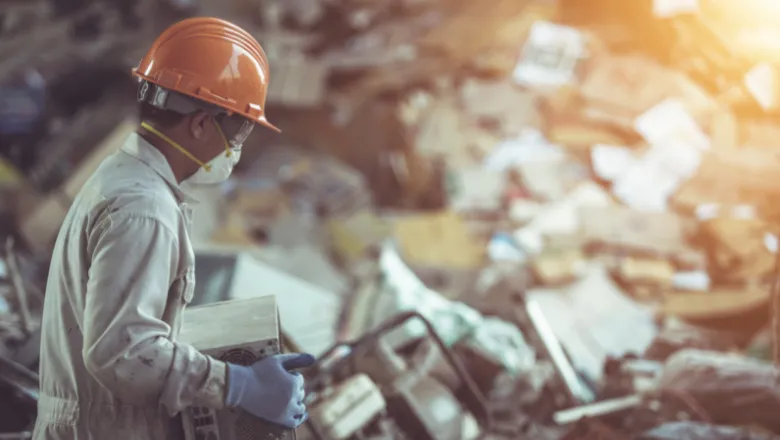We were keenly aware of the vast amount of literature being published on COVID-19 and wanted to gain a clearer picture of research and knowledge production around waste management. The interdisciplinary review and subsequent analysis helped us identify how the causes and impacts of waste might be connected more explicitly and critically to questions of health.
Dr Emma Garnett
24 March 2022
COVID-19 provides opportunities to re-think waste and public health
Authors of a newly published paper contend the pandemic presents an opportunity to evaluate the intersections of waste and environmental, occupational and public health.

Much has been made of reductions in air pollution due to COVID-19 lockdown, as well as the detrimental effects of ‘coronalitter’ and ‘coronawaste’ on the natural environment – often in the form of single-use plastics and disposable personal protective equipment (PPE). But what issues does the popular discourse on waste during the pandemic overlook? Are there less visible implications of the way waste infrastructure and systems have been managed?
A review conducted by Dr Emma Garnett in the School of Life Course & Population Sciences at King’s, as part of a wider project led by Dr Angeliki Balayannis at the University of Exeter, suggests that the pandemic has exposed how problems of waste management are entangled with health and explain why it matters for future research and policy in this area.
Their paper: The work of waste during COVID-19: logics of public, environmental, and occupational health, published in Critical Public Health, outlines a research agenda for approaching waste as a critical public health problem at a time of intersecting health crises and inequalities.
The authors discovered a paucity of research on how people working in waste management have been affected by COVID-19. They delineate three different 'logics of health’ - environmental health, public health, and occupational health - and demonstrate how each overlooks the infrastructures and systems of waste management.
This has resulted in much of the blame around waste production during the pandemic pointed at individuals and consumers, which the authors argue sidelines broader political and organisational decision-making. For example, it is governments and industry who have enforced changes to waste management, with implications for waste workers that reinforce health injustices like over-work and increased risk of COVID-19 exposure.
Consequently, the authors propose a ‘multi-logic’ approach that allows for cross-disciplinary perspectives and learnings. Most importantly, they maintain that waste offers an important and generative starting point for doing critical public health research, arguing the COVID-19 pandemic has only crystalised this opportunity.
Read the full paper The work of waste during COVID-19: logics of public, environmental, and occupational health.
